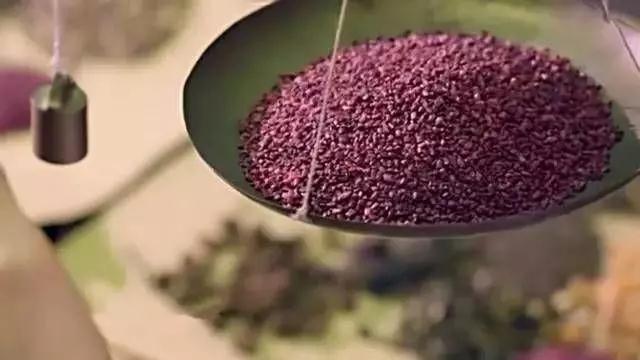
GUANGDONG KELONG BIOTECHNOLOGY CO., LTD.
Add: No.5-17 and No.5-32, South area of Qibao Industry and Trade, Huicheng, Xinhui, Jiangmen, Guangdong, China
Tel:+86-750-6978788
Fax:+86-750-6978868
Wechat: 13828063050
Website: http://xgxxkef.cn
Email: export@kelongbio.com
marketing@kelongbio.com
Minimally inactive
1. Monascus Redt rice is an invention in ancient China. The modern food industry is mainly obtained through liquid culture.
2. Monascus Red rice is widely used in foods, mainly to color the surface of food, and to reduce the amount of nitrite in meat products.
3, the health care function of Monascus Red is mainly based on some of its active ingredients, the effect of eating Monascus Reddirectly is very limited.
4, Monascus Red can produce the potential carcinogen citrinin, but the current strain screening and process improvement has solved this problem.
There are all kinds of molds in nature, and you often see colorful plaque on the surface of improperly preserved food.
There are many treasures in it, such as penicillin.
But what I am going to say is another thing called Monascus Red, a widely used natural pigment. It is now known that there are at least 10 pigment components inMonascus Red rice.
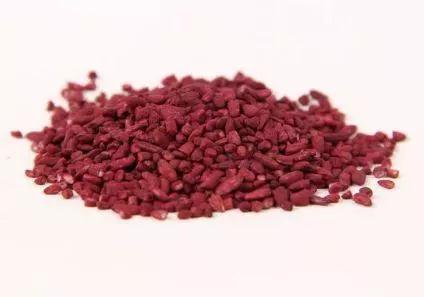
[History of the Monascus Red]
In ancient times, people used Monascus Red to ferment and produce wine. For example, in the Southern Song Dynasty, "Cangxi Fishing and Drinking Crowd" recorded "the Jiangnan people make red wine, the color tastes two must", this tradition has been passed down to today.
In ancient times, it was not easy to obtain pigments. There were fewer safe and reliable food colorings. Monascus Red rice is one of the outstanding representatives. For example, "Qing Yi Lu" has "cooking meat with Monascus Red", and now people use it when cooking steamed pork. Monascus Red.
The ancients also found that Monascus Red has certain antiseptic and fresh-keeping functions. For example, "Tiangong Kaiwu" records the use of Monascus Red to smear fish meat. "After 10 days, the flies are not close, and the color taste is not reduced."
The traditional Monascus Red has three varieties: Kuqu, Light, and Color.
Kuqu is mainly used to brew rice wine, fruit wine and medicinal liquor. Light song is mainly used to brew fermented bean curd, pickles, fruit wine, medicinal wine, food coloring, and color koji is mainly used for food coloring.
The differences in their production are mainly the difference between strains, fermentation cycles and so on. Fujian is the main producing area of traditional Chinese red songs. It is best known as Gutian Monascus Red.
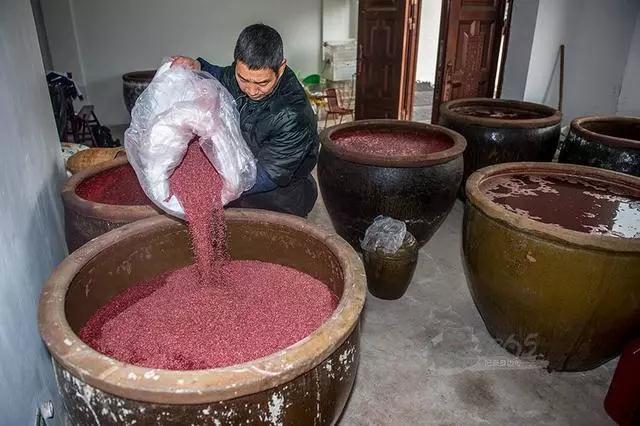
[Monascus Red acquisition]
The ancestors may have inspired the moldy rice and invented the method of making Monascus Red rice.
It is also simple to let the red mold contaminate the steamed rice, then let it grow fully, and finally dry to get Monascus Red rice.
Don't rush to dump the next meal, put it for a few days, maybe you can see the red song grow out from inside~
In the modern food industry, Monascus is cultivated in a liquid nutrient solution, and then the pigment is obtained through separation and extraction processes, which is also called Monascus Red.
It is of course also possible to obtain Monascus Red rice in a conventional manner and then grind the extracted pigment.
However, since the 1990s, the process of liquid culture has become a protagonist, and the yield of Monascus Red pigment has increased dramatically.
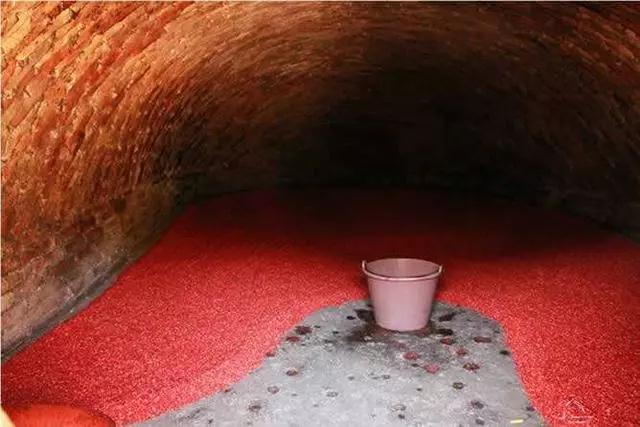
[Applicability]
The chemical properties of Monascus pigments are quite excellent in natural pigments, stable in the range of pH 1-12, and maintain color in a 120-degree high temperature sterilization environment, thus meeting the needs of food cooking.
In addition, it is relatively stable to various oxidizing or reducing substances and is not easily affected by metal ions, so heat is suitable for use in the food industry.
Of course, it is not invulnerable. For example, it will fade after direct sunlight. Therefore, it needs to be combined with some vitamin C or trehalose, gelatin and other ingredients to enhance stability.
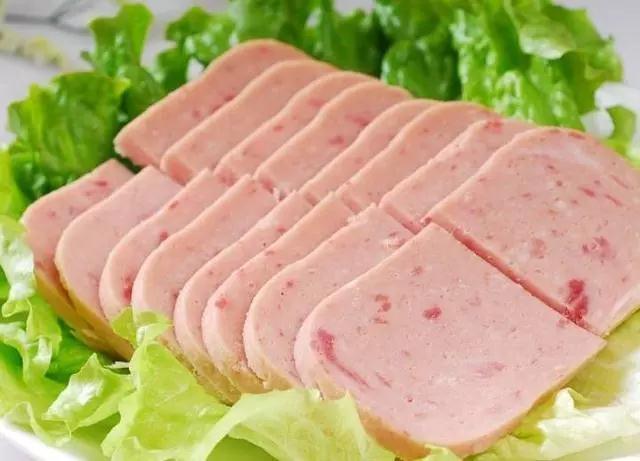
[Food is widely used]
People who like to eat meat know that nitrite is often added to foods such as lunch meat and ham.
This is because nitrite can react with myoglobin, and the formed nitroso myoglobin is relatively stable, so that the meat does not become a dark color after heating, and nitrite can also impart a unique flavor to the food. .
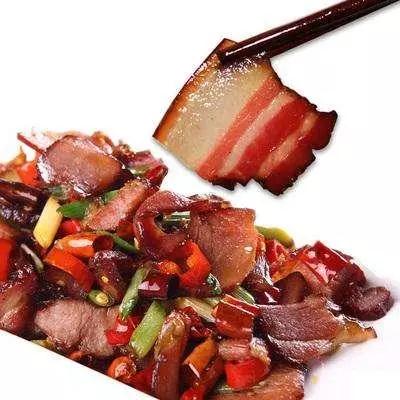
However, because many people think that nitrite is carcinogenic, reducing nitrite is an opportune choice.
The use of Monascus Red can play a role in coloring, thereby greatly reducing the use of nitrite.
In addition to the aforementioned coloring for ham and luncheon meat, it can also be used for coloring food surfaces such as decorative pastries, candies, pickles, juices, ice cream, etc., and coloring of cosmetics and pharmaceuticals.
It is found in the bean curd used in home cooking steamed pork and braised pork.
Some people may ask, can the color of the meat surface be understood, can the color of the sauce beef be colored?
Since the Monascus pigment can be dissolved in water, it can also be colored inside the meat during the processing of the "conditioning meat".
The method is very simple. It is enough to use a syringe to add the pickled liquid with the Monascus Red pigment.
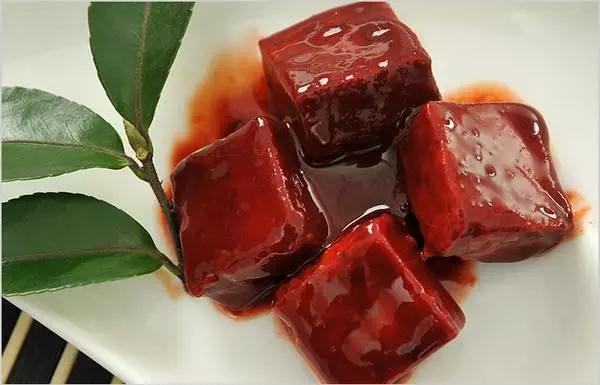
[Do not superstitious health function]
As early as 1979, the Japanese discovered an active substance that inhibits cholesterol synthesis from Monascus, called Monacolin K.
Later on this basis, the cholesterol-lowering drug lovastatin was developed.
Later, scientists found more active ingredients in Monascus Red, such as ergosterol (which can be converted to vitamin D in the body) and gamma-aminobutyric acid.
The current scientific evidence shows that certain substances in Monascus Red have certain beneficial functions such as anti-cancer, blood sugar lowering, blood fat lowering and blood pressure lowering.
However, consumers must keep in mind that red songs in normal diets are not so magical, even health foods developed with Monascus Red are difficult to achieve.
The reason is simple, because the content of the functional ingredients in Monascus Red rice is really too low.
(This type of product is often compressed candy or capsules, sold as ordinary food, through non-physical store channels such as sales, micro-business, TV shopping, etc., is the hardest hit area for illegal drug addition)
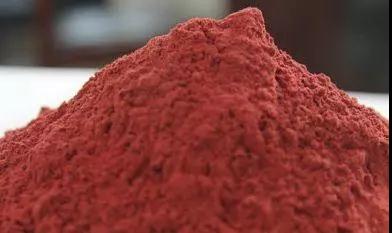
[Carcinogenicity is also scaring people]
Monascus is a mold after all, and it produces metabolites far more than red pigment.
It has long been known that Monascus Red has antibacterial ability. About 20 years ago, French scientists identified citrinin produced by Monascus, and later found that many Monascus produced this substance.
Citrinin is a mycotoxin. Although it is less toxic than aflatoxin, it may still have nephrotoxicity and carcinogenic and teratogenic effects.
Subsequently, Japan, the United States, the European Union and other countries and regions began to restrict the export of Chinese Monascus Red products.
Later, the Chinese food industry began to screen for excellent Monascus species that did not produce citrinin, and at the same time reduced the production of citrinin by improving the production process.
This historical problem has been basically solved, and China's national standards have also imposed a limited regulation on citrinin in Monascus pigment.
Therefore, it has been okay for the ancients to eat for so many years. It does not mean that it is really okay, because it does not know what it caused.
In short, Monascus Red rice can be safely and safely eaten, but don't expect to eat it for longevity.
